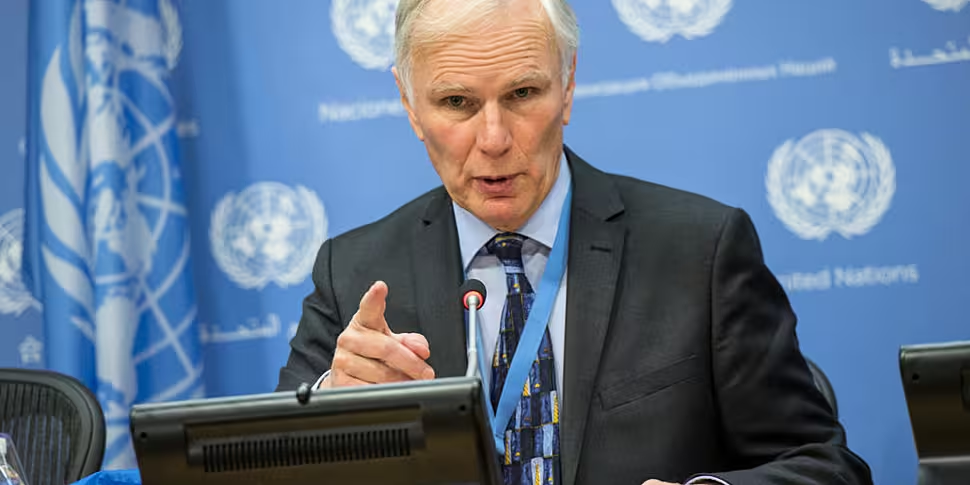A UN expert has warned that the world could face 'climate apartheid' due to climate change's impact on those living in poverty.
Philip Alston, the UN's Special Rapporteur on extreme poverty and human rights, has issued the stark warning in a new report - adding that climate change also threatens democracy and human rights.
He points out that changes to the environment could push more than 120 million more people into poverty by 2030, while the most significant impact will be in poor regions.
My new report on #ClimateChange and poverty is out today. It finds that climate change will have the greatest impact on those living in poverty, but also poses dire threats to democracy and human rights that most actors have barely begun to grapple with: https://t.co/4CDnAl4uHg pic.twitter.com/nNZ13iM4EE
— Philip Alston (@PhilipGAlston) June 25, 2019
His new report published today cites studies showing developing countries will bear an estimated 75-80% of the costs of climate change - threatening to undo half a century worth of progress in areas such as poverty reduction.
Mr Alston said: "Perversely, while people in poverty are responsible for just a fraction of global emissions, they will bear the brunt of climate change, and have the least capacity to protect themselves.
"We risk a ‘climate apartheid’ scenario where the wealthy pay to escape overheating, hunger, and conflict while the rest of the world is left to suffer."
"Ticking boxes will not save humanity"
According to the report, the "unrealistic" best-case scenario of 1.5°C of warming by 2100 would leave many areas with issues such as food security, lost incomes and serious health issues.
That would leave many people having to choose between starvation and migration, the report warns.
It says 'staying the course' will be "disastrous for the global economy" and force many more people into poverty.
It also states that many human rights organisations have failed to pay urgent attention to climate change or make it an "integral part" of their mainstream work.
The report highlights a range of reasons for the ongoing risks from climate change - pointing to recent actions by the Brazilian, Chinese and US governments as examples of countries making "short-sighted steps in the wrong direction".
It points to the Paris Agreement as the most promising step to address climate change so far, but suggests the commitments made by some states have been "woefully insufficient".
Focusing back on the human rights response, the report concludes: "The steps taken by most United Nations human rights bodies have been patently inadequate and premised on forms of incremental managerialism and proceduralism which are entirely disproportionate to the urgency and magnitude of the threat.
"Ticking boxes will not save humanity or the planet from impending disaster."
Mr Alston adds that climate change is an "unconscionable assault on the poor", stressing that major action is needed if human rights are to survive the the "coming upheaval".









